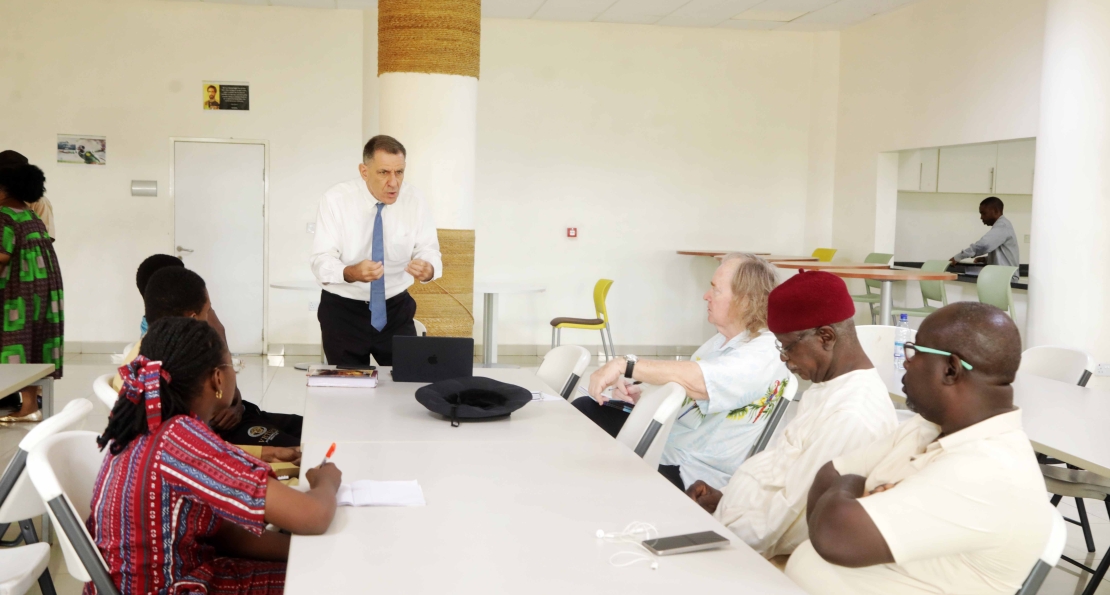The Provost and Vice President for Academic Affairs at the American University of Nigeria (AUN), Dr. Paul Vita has advised students and faculty members to engage responsibly with Artificial Intelligence (AI) tools, stressing that while AI offers new opportunities in education, it must not replace original thinking, critical analysis, and academic honesty.
Dr. Vita gave the advice on September 26, 2025, during a university-wide workshop titled “Introduction to AI and University Writing.” The session, attended by students, faculty, and Writing Center staff, aimed to guide the AUN community on how to ethically navigate the rapidly growing presence of AI tools in higher education.
He explained that AI represents a shift from simply recording knowledge to actively generating new content — including text, images, and ideas — creating both opportunities and challenges for learners and educators alike. Drawing a historical parallel, Dr. Vita noted that just as the invention of writing changed how humans process and retain information, AI could similarly reshape how people learn, write, and think.
“The purpose of writing at the university level goes beyond producing grammatically correct text,” he emphasized. “Students write to develop critical thinking skills, demonstrate what they have learned, engage in academic conversations, reflect on ideas, and prepare for the professional world.”
Dr. Vita reminded participants that even the ancient philosopher Plato once worried that writing would weaken human memory. In the same way, he cautioned that AI might diminish essential cognitive skills such as deep thinking, composition, and critical recall. However, he also noted that, just as writing eventually freed mental space for new intellectual work, AI could serve a similar purpose if used wisely.
He laid out clear, practical guidelines for AI use at AUN. The university, he said, expects full transparency from students regarding AI usage. Any content generated by AI must be properly cited or disclosed. Dr. Vita cautioned against outsourcing thinking to machines, emphasizing that AI should serve as a support tool, not a substitute for effort and learning. He also urged students to verify AI-generated information, trace original sources, and add their own critical voice and analysis to their work.
He further highlighted AUN’s official policy on AI use, which encourages responsible innovation while upholding the university’s core values of academic integrity, fairness, transparency, and respect for human dignity. According to the policy, students may use AI tools for brainstorming ideas or improving drafts, but they may not submit work that fails to reflect their own understanding or intellectual effort. Any misuse of AI that compromises ethical standards will be treated as a violation of university rules.
Dr. Vita concluded by encouraging faculty to continuously adapt their teaching and assessments, and for students to embrace technology without compromising learning goals. He reaffirmed the university’s commitment to ethical academic innovation, assuring that AUN will continue to host similar workshops and provide resources to guide the community.
“AI is here to stay,” Dr. Vita said. “However, how we use it will define its impact. It is not about resisting change; it is about using it wisely, with integrity, and with a clear purpose.”
Reported by Pwagreno Blessing Moris


